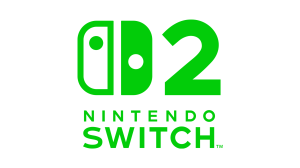
The coronavirus, also referred to as COVID-19, has dominated the news for the past two months and left no aspect of life untouched. Constantly changing expectations and responses have made it difficult to know where things stand anywhere in the world or to understand how they reached their current status quo. That includes comic books. The comics industry has been deeply impacted by the illness and will likely be changed forever by the events of this year. In order to help our readers better understand the current situation and where their favorite creators, publishers, or characters may stand, we present a brief narrative history of the coronavirus’s impact on the North American comic book industry so far:
Videos by ComicBook.com
Seattle, Washington serves as a starting point for the story of the coronavirus in the United States and its impact on the comic book industry. The first confirmed case of the illness was detected in the city on January 21, and as a result many events and daily routines were cancelled or postponed much earlier there than in the rest of the nation. That includes one of the largest comic book conventions of the year: Emerald City Comicon (ECCC), originally scheduled to begin on March 12. ECCC is commonly perceived as the start of convention season for many professionals and is managed by ReedPop, who also oversee conventions like New York Comic Con and C2E2.
Early concerns about the illness led publishers and other participants to announce their withdrawal from the event. On March 4 it was announced that the convention would offer participants a full refund and two days later, on March 6, the convention was canceled and later rescheduled for August. Other industry events quickly began to follow with the Diamond Retailer Summit canceled altogether on March 11. ECCC provides a sense of how quickly plans and decisions are changing in response to the constantly evolving situation surrounding the illness—a recurring theme in the industry’s reaction to the coronavirus.
Early March saw many individual cities and states begin implementing social distancing measures in order to slow the spread of the illness. The first statewide stay at home order was issued in California on March 19, but by this time many cities had already closed non-essential businesses, businesses had shifted to work-from-home policies, and school districts had announced their closure. The result was that comic book stores in impacted areas either could not remain open or were only able to operate using inventive systems like curbside pickup.
Anything impacting comic book stores, which compose the sales system known as the direct market, has a subsequent impact upon the entire comic book industry in North America. Comic book stores account for the majority of weekly sales for new issues with digital and other alternatives composing only a small portion of revenue, typically estimated as being less than 20%.
The closure and reduced sales at many stores, especially in large markets severely impacted by the spread of the coronavirus like New York and California, resulted in a quick response from publishers. Image Comics announced plans to make comics impacted by the crisis returnable on March 17 and publisher Eric Stephenson issued a statement addressing what the company was doing to help comic book stores and calling on other publishers to help. Many smaller publishers, including IDW and Boom! Studios, also released statements about changing their businesses in order to provide relief for impacted retailers.
Over the next weeks, with additional closures caused by the spread of the coronavirus, plans for the direct market continued to evolve. Free Comic Book Day, one of the industry’s largest sales days, was initially changed to a month long event (Free Comic Book May) and then canceled altogether on March 18. Marvel Comics was one of the last notable publishers to announce a response on March 20 with large discounts provided for stores. This left DC Comics as one of the only publishers to not release plans for addressing worsening problems in the direct market.
This would become a moot point a few days later when, on March 23, Diamond Comic Distributors announced they would cease receiving shipments at their warehouse for the indefinite future. This announcement sent shockwaves through the direct market due to Diamond’s central role in the market. Diamond holds exclusive contracts with most notable publishers providing them with an effective monopoly over the distribution of product in the direct market. The closure of their warehouse essentially meant the cessation of new releases. The following Wednesday, March 25, would be the last New Comic Book Day at stores for the foreseeable future.
DC Comics finally released a statement on March 28 announcing they would make all comics released through the end of June returnable and that they were seeking distribution alternatives, referring to the creation of a “multi-distributor model.” This provided direct market retailers and consumers with some hope for the future following Diamond’s bombshell announcement. On March 30 the publisher would also announce plans to limit their digital releases for the week, a decision followed by Marvel Comics the next day—decisions that effectively canceled New Comic Book Day on April 1 in all formats. Digital first and bookstore publications continue to be distributed and sold by most comic book publishers.
The impact of these cutbacks across the direct market have only begun to be felt by the comic book industry, but there have been multiple notable announcements in the last week alone. On March 31 Diamond announced they would cease payments to vendors (i.e. publishers) due to cash flow problems caused by the closure of many customers (i.e. comic book stores). Marvel Comics has publicly announced changes to their publishing schedule, pausing approximately one-third of current projects. This reduction mirrors similar moves by publishers, including Dark Horse Comics and IDW Publishing, directly impacting many creators who will only be paid for completed work.
Publishers and industry leaders have begun to seek methods to support retailers unable to sell new products. DC Comics announced a donation of $250,000 to the Book Industry Charitable Foundation that will go to support struggling stores. DC Comics’ publisher Jim Lee, a renowned artist, has begun auctioning sketches with proceeds going directly to support stores. Image Comics co-founder and Deadpool creator Rob Liefeld has also begun to post drawings on Instagram and auction them to support stores. All of these efforts will supplement financial relief in the form of various loans provided for in Congress’ most recent relief bill.
Now the industry enters its second week without a New Comic Book Day as the United States and much of the world face a worsening crisis. It is unclear when distribution may resume, when stores might be able to reopen, or what alternative measures may be taken to provide relief for the many impacted companies and individuals. The story so far has proven how quickly and unpredictably the situation of the comic book industry is changing under the specter of the coronavirus. We will continue to bring you the latest updates as they emerge.
However, there are still actions that readers and fans can take in order to support their local comic book store wherever they reside. Comics Industry Collective has assembled a directory of retailers with contact information (and the ability to submit new retailers) in order to help readers learn their store’s current status. Some stores remain open and are providing curbside pick up, drive-thru services, delivery, and other inventive measures that maintain social distancing guidelines and allow customers to safely purchase new comics. The purchase of gift cards, creation of pull files, and orders for existing titles (like those recommended by our staff) can all serve to provide stores with some much needed cash flow at this moment. Comics writer Robert Venditti is advocating for #PullBoxPayItForward where readers call into stores in order to pay off their existing reservations. If you are unsure which of these options may be available or most helpful, we recommend contacting your local store and asking them directly.
The coronavirus has exposed the fragility of the comics industry and left its future uncertain. The actions of many within the industry, ranging all the way from publishers to fans, has provided relief and opportunities for the direct market to survive the current crisis in some form. While the days ahead will certainly be difficult, efforts to help small business owners and creators provide cause for optimism in the long run. We will continue to provide updates on how we can support our comics community and the many people who make that community valuable.








